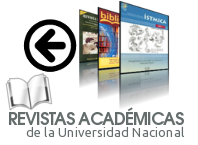Librarians associations in Cuba: historical analysis of their emergence in 1936
DOI:
https://doi.org/10.15359/rb.40-2.1Keywords:
Professional association, Library Association, Library professional, Cuban Library AssociationAbstract
The proliferation of professional library associations in Cuba takes place in the 1930s as part of the nation's incorporation into the global movement. From a review of the published scientific literature, it was possible to identify the absence of sources dedicated to the analysis of associations of library professionals in Cuba. Objectives: to examine the main library associations in Cuba from the 1930s to the present. Methods: the study presented here is classified as descriptive. To obtain results, methods were applied at the theoretical and empirical levels, fundamentally the documentary analysis. He highlighted the technique of social network analysis for the visualization of results.
As main results, the associations of library professionals in Cuba from 1936 to te presenten were described. The principles of the Cuban Association of Librarians were established, an organization that currently brings together professionals in the sector. Conclusions: the professional librarian associations that emerged in Cuba from 1930 to 1959 had little legal and governmental support. In 1986 the Cuban Association of Librarians was founded under the acronym ASCUBI and it is the organization that currently brings together information professionals in Cuba. Among the directives of the associations, personalities such as María Teresa Freyre de Andrade and Emilio Setién Quesada stood out.
References
Batista, F. (1952). Ley Decreto del 18 de noviembre de 1952 sobre la asociación oficial de bibliotecarios. Gaceta Oficial de la República de Cuba, 18(1952), 20-21.
Bellas, M.A. (2017). 30 años de la creación de la Asociación Cubana de Bibliotecarios. Revista de la Biblioteca Nacional José Martí, 2(2017), 211-215.
Bellas, M.A. y Santovenia, J.R. (2021). La ASCUBI en su 35 aniversario: desarrollo de la Bibliotecología. Bibliotecas. Anales de Investigación, 17(1), 1-2. http://revistas.bnjm.cu/index.php/BAI/article/view/251/265
Campos, F.R. y Rúas J. (2016). Uso de las redes sociales digitales profesionales y científicas: el caso de las 3 universidades gallegas. El profesional de la información, 25(3), 431-440. https://doi.org/10.3145/epi.2016.may.13
Freyre, M.T. (1953). El trabajo bibliotecario en Cuba republicana. Cuba Bibliotecológica 1(1953), 1-7.
Frías, M., Paz, L.E., Alomá, C., Tamayo, D. y Hernández EA. (2019). El boletín ASCUBI Villa Clara, reflejo del acontecer informativo en el centro de Cuba. Bibliotecas, 37(1), 1-23. https://doi.org/10.15359/rb.37-1.1
Hernández, Y. (2002). Las asociaciones bibliotecarias cubanas: (1938-1959). La Habana: Facultad de Comunicación.
Llano, G., Sánchez, S., Pérez, F. y Maro, G. (2018). Actividad de la Asociación Cubana de Bibliotecarios en la red de bibliotecas médicas de Sancti Spíritus. Revista Cubana de Información en Ciencias de la Salud, 29(2), 1-18. http://www.acimed.sld.cu/index.php/acimed/article/view/1171
Montano, B.J. (2017). Las asociaciones profesionales de bibliotecas y documentación como comunidades de valor. Boletín de la Asociación Andaluza de Bibliotecarios, 32(114), 195-203.
Montes de Oca, D. (2005). María Teresa Freyre de Andrade, precursora de la Bibliotecología moderna. La Habana: Universidad de La Habana.
Pérez, K., Mugarra, C.G., Tarajano, A.O., Arvajal, B.M. y Pérez HO. (2016). Presupuestos teóricos conceptuales sobre la ética y el desempeño profesional en las bibliotecas. Anales de Investigación, 12(2), 153-164. http://revistas.bnjm.cu/index.php/BAI/article/view/174
Rexach, R. (1989). El Lyceum de la Habana como institución cultural. Rosario: Cervantes
Rivera, Z. (2005). Lyceum Lawn Tennis Club: El inicio de la formación de los bibliotecarios en Cuba. Anales de investigación, 1(2005), 80-95. http://revistas.bnjm.cu/index.php/BAI/article/view/267
Rojas, J.L. y Rivas, S. (2016). El boletín de la Asociación Cubana de Bibliotecarios; valoraciones y expectativas de sus usuarios. Anales de Investigación, 12(1), 104-113. http://revistas.bnjm.cu/index.php/BAI/article/view/164
Saraiva, R., Alonso, J., López, C.A. (2019). La biblioteca de hospital en Portugal: la visión de los bibliotecarios. Revista Cubana de Información en Ciencias de la Salud, 30(4), 1-16. http://www.acimed.sld.cu/index.php/acimed/article/view/1422
Setién, E. (2010). El Código de Ética de la Asociación Cubana de Bibliotecarios (ASCUBI) en el contexto internacional. Ibersid: Revista de Sistemas de información y Documentación, 4(2), 141–144. https://doi.org/10.54886/ibersid.v4i.3882
Villar, M. (1949). La enseñanza biblioteconómica en Cuba. Boletín de la Asociación Cubana de Bibliotecarios, 3-4(1949), 93-106
Williams-McWorter K, Alkalimat, A. (2019). Cuba y la Federación Internacional de Asociaciones e Instituciones de Bibliotecarios y Bibliotecas. Library Trends, 67(4), 789-805.
Downloads
Published
How to Cite
Issue
Section
License
Bibliotecas provide immediate open access to their content, based on the principle of facilitating research to the public free of charge and free of charge to promote the global exchange of knowledge.
The journal Bibliotecas is a publication hosted by a public higher education institution, which is supported by public resources. Since its inception, the magazine has offered all its contents free of charge without any restriction on the rights of: reading, downloading and printing in full text. Works published in libraries may be analyzed, quoted and reproduced in whole or in part, mentioning the original source.
The journal Bibliotecas is licensed under the Creative Commons Attribution - Non-Commercial - Share Equal, 4.0 International license; therefore, it is allowed to: share, copy and redistribute the material in any medium or format.

Este obra está bajo una licencia Creative Commons Atribución-NoComercial-CompartirIgual 4.0 Internacional.








